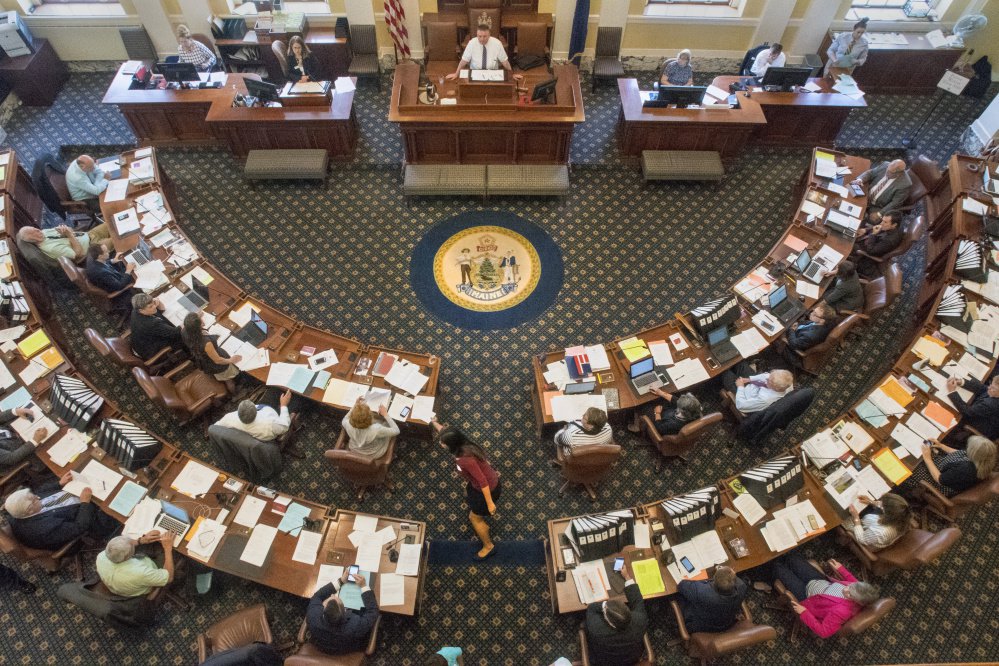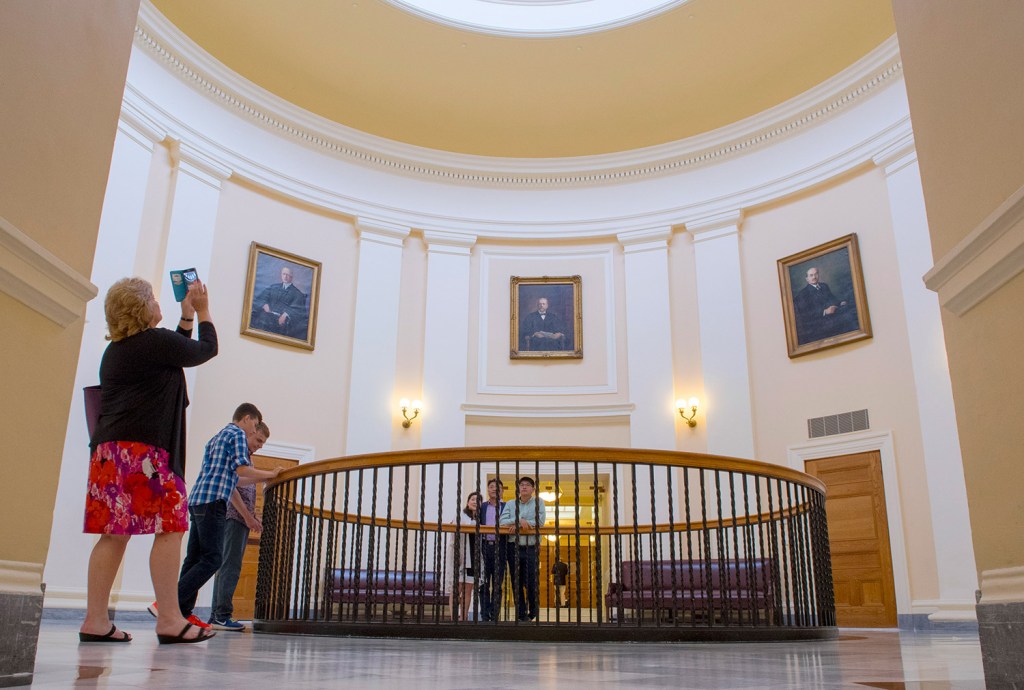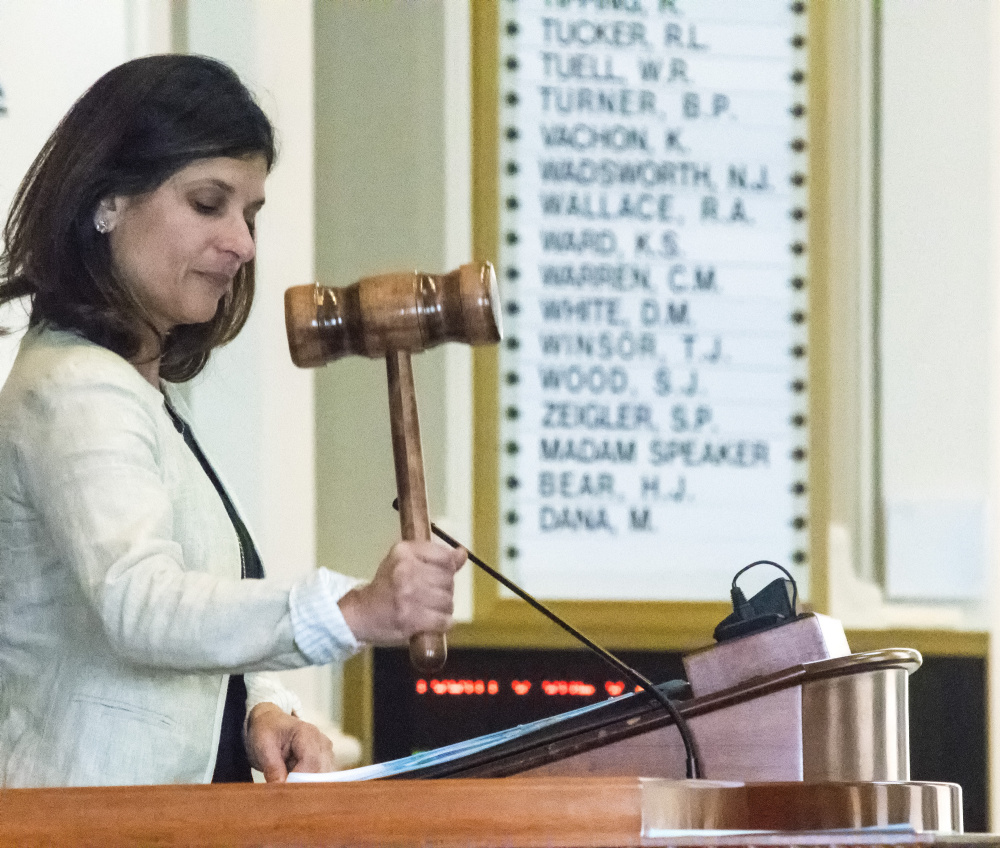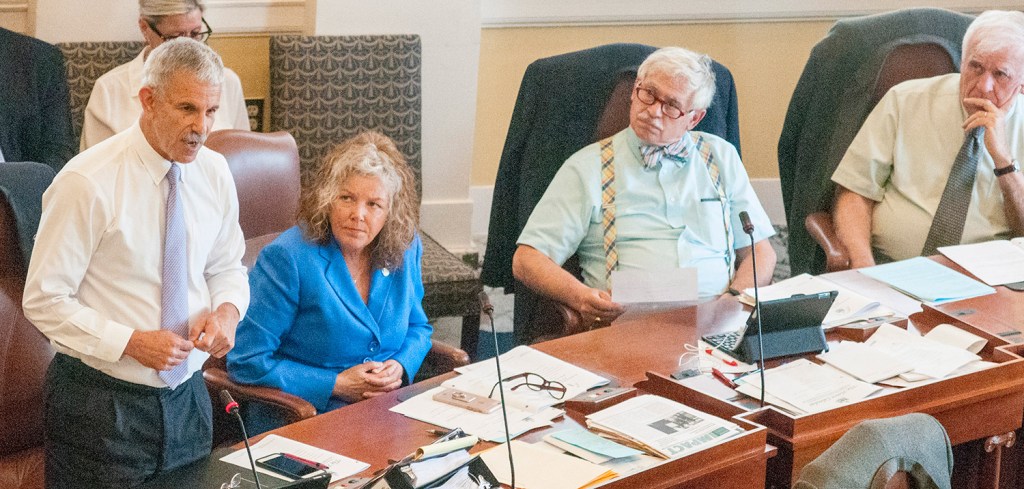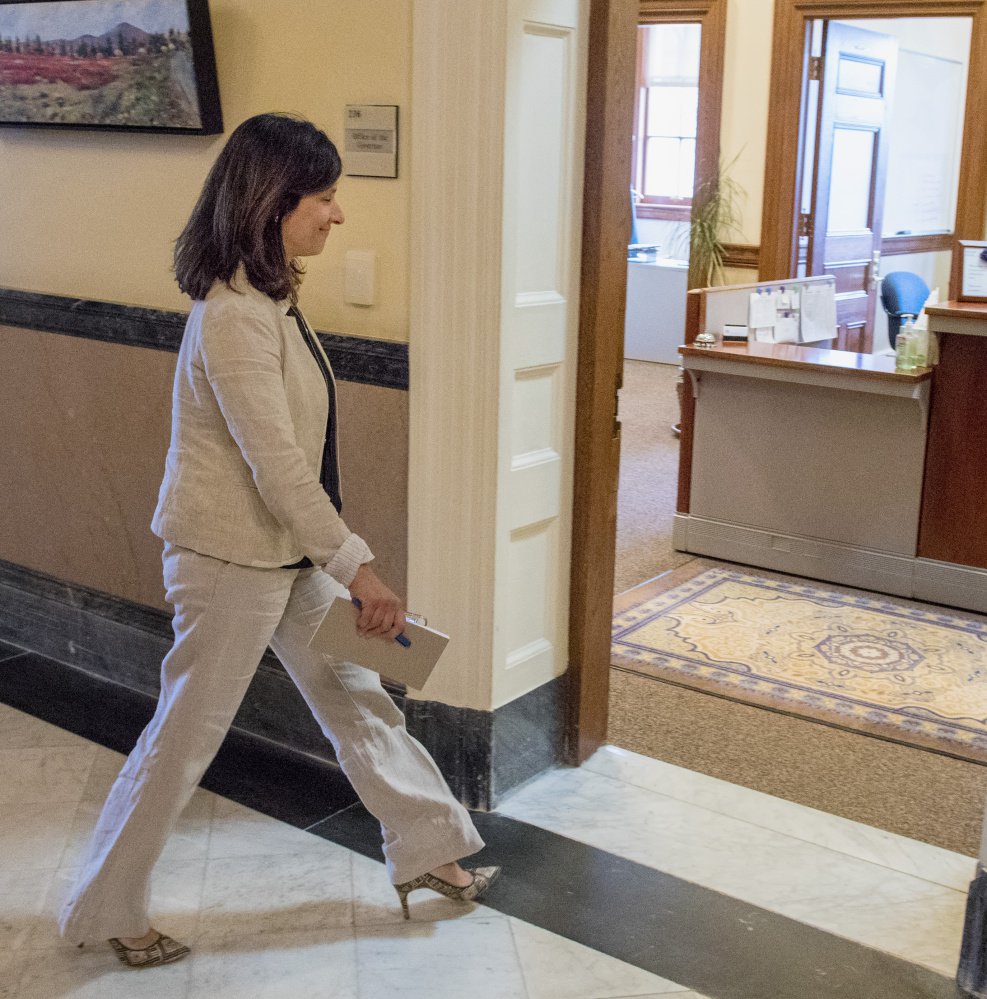AUGUSTA — The LePage administration began preparing Tuesday for a partial shutdown of state government even as talks continued between the governor and legislative leaders on striking an as-yet-elusive budget deal before month’s end.
During a Tuesday morning Cabinet meeting, Gov. Paul LePage instructed department commissioners to begin identifying “essential services” that would keep operating in the event of a shutdown July 1. Despite the looming deadline and the renewed threat of a gubernatorial veto, there were few signs of urgency – much less panic – inside State House corridors as Republican and Democratic leaders resumed closed-door negotiations after talks stalled Saturday amid an impasse over education funding.
“We are not planning for a shutdown. However, we are preparing just in case the Legislature does not do its job,” said LePage spokeswoman Adrienne Bennett. “We have a process underway right now with the commissioners. But certainly, the governor has said he is willing to talk (about his priorities) with lawmakers if he is invited.”
House and Senate leaders met late Tuesday afternoon, but again ended without a major breakthrough on the key sticking point in negotiations: the voter-approved 3 percent tax surcharge on wealthy Mainers to pay for education.
“We’re still talking and folks are still looking for common ground,” said Senate President Mike Thibodeau, R-Winterport. “But people are pretty entrenched in their positions, and we’re going to have to find a way to move beyond those positions.”
SEEKING SURCHARGE COMPROMISE
Lawmakers have less than 10 days to finalize the roughly $7 billion budget before the new fiscal year begins July 1. LePage and Republican legislative leaders continue to insist that the 3 percent tax – which pushes the top tax rate to 10.15 percent for all earnings above $200,000 – must be rescinded to ensure that Maine avoids the distinction of having the nation’s highest income-tax rate at that income level. Yet there are disagreements within Republican ranks, with Senate Republicans offering $100 million in additional education spending and House Republicans largely reflecting LePage’s position.
Democrats, meanwhile, have said they are willing to reduce or even eliminate the surcharge, but only if Republicans agree to replace the estimated estimated$320 million windfall in K-12 funding that the surcharge would generate. Although a six-person conference committee was created to work out a budget deal, the House and Senate leaders from both parties appear to be doing most of the talking.
House Speaker Sara Gideon, D-Freeport, met privately with LePage for about 45 minutes Tuesday afternoon. Asked afterward how far apart the sides remained, Gideon replied, “The same.”
Talk of a potential government shutdown has become commonplace in the past several budget negotiations as LePage fights with lawmakers over tax cuts, welfare and other controversial issues. The last shutdown occurred in 1991 in a budget dispute over worker’s compensation, and the resulting chaos had severe political ramifications for both parties. State parks and beaches were not staffed during the July Fourth holiday, motor vehicle offices were shuttered, and state ferries to Maine’s many islands ran less frequently.
While state police and corrections officers were considered “emergency staff,” there were fewer inspections of agricultural commodities and food assistance applicants faced longer delays. Additionally, thousands of angry state employees clogged the State House and camped out on Capitol grounds, creating a public relations spectacle at the height of Maine’s summer tourism season.
LePage’s office was beginning the process of identifying essential services, using documents from Gov. John McKernan’s office from the 1991 shutdown as guidance, Bennett said.
Thibodeau remained optimistic that a bipartisan deal will emerge before Maine sees a repeat of the events from 1991.
“Let’s just hope it’s an unnecessary exercise,” Thibodeau said of the LePage administration’s shutdown preparations. “I find it hard to believe that 186 (lawmakers) who care about the state of Maine can’t come together and pass a budget” to avoid a shutdown.
Speaking to WVOM-FM’s morning radio show Tuesday, LePage predicted a shutdown won’t happen because lawmakers – particularly Democrats – will fear the political consequences.
“Frankly, this year with the commotion on the 3 percent (tax surcharge) rising up and people starting to turn against it now pretty hard, I think that we don’t shut government down,” LePage said. “I think if they shut government down, I think Democrats are going take one wallop next year because they are the ones that are hanging onto this 3 percent.”
And he repeated his vow to veto any budget that he disagrees with, which many in the State House believe is a foregone conclusion given the governor’s track record.
Any budget deal will require two-thirds majorities to pass in both the Democrat-controlled House and the Republican-controlled Senate because of the late date in the legislative calendar. The governor then has 10 days, not including Sundays, to either sign, veto or allow any legislation to take effect without his signature, although he does not need to wait the full 10 days. That means lawmakers could technically deliver a budget to LePage on June 30 and hold a marathon session on whether to override a same-day veto.
But Tuesday, LePage once again railed against lawmakers – including Senate Republicans – for not being willing to consider major “reforms” to education spending and tax policy.
“I know the attempt is going to be to run the clock out, give me a budget and say, ‘We dare you to veto it,’ ” LePage told WVOM’s Ric Tyler and George Hale. “Well, I’m going to tell you something: If it hurts Maine, I am going to veto it. I don’t care if it’s the 11th hour, the 10th hour or tomorrow morning. If it is the wrong thing for Maine, I am going to veto it.”
TRADE-OFFS FOR EDUCATION FUNDS
Democrats have accused Le- Page and House Republicans of refusing to negotiate in good faith on the budget. Democratic leaders have said they are willing to discuss repealing at least some of the 3 percent surcharge, but only if the budget replaces the revenues.
On WVOM, LePage insisted he is willing to consider additional spending in exchange for other “reforms.” For instance, LePage’s proposed $6.8 billion budget envisioned wholesale changes to the state’s education funding formula, including statewide teacher contracts and eliminating state funding for administrative positions. However, lawmakers have rejected those proposals, arguing that LePage’s reforms would merely shift more of the K-12 burden onto property taxpayers.
Lawmakers also have repeatedly rejected LePage proposals – which he mentioned again Tuesday – to tax land trusts and other nonprofit organizations.
Kevin Miller can be contacted at 791-6312 or at:
kmiller@mainetoday.com
Twitter: KevinMillerPPH
Send questions/comments to the editors.



